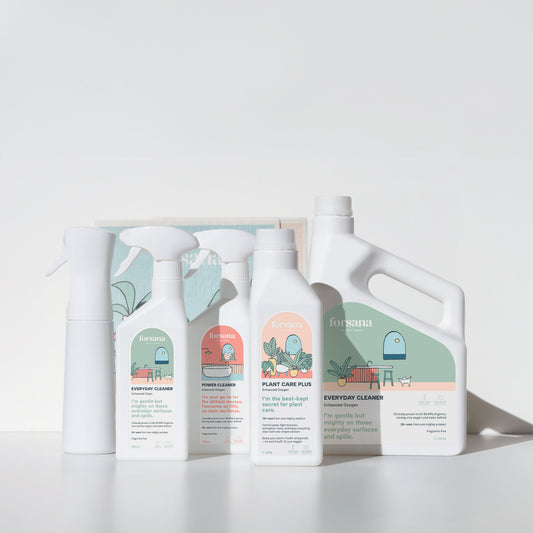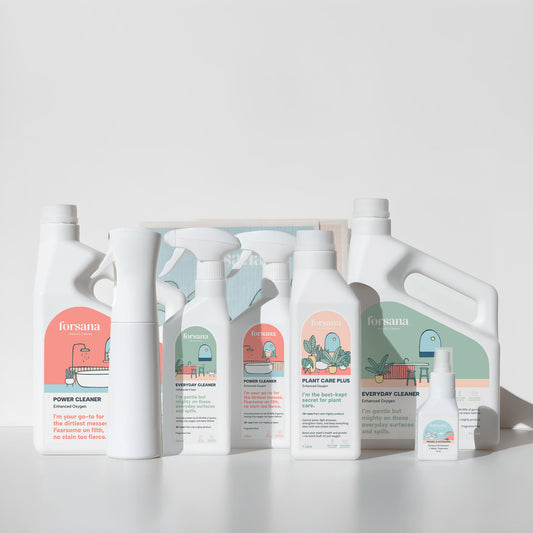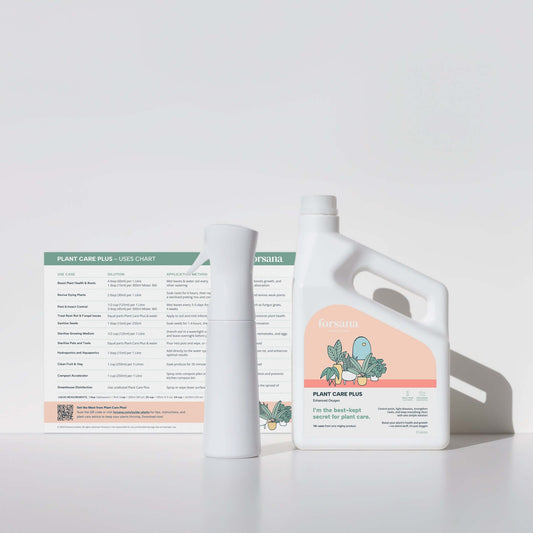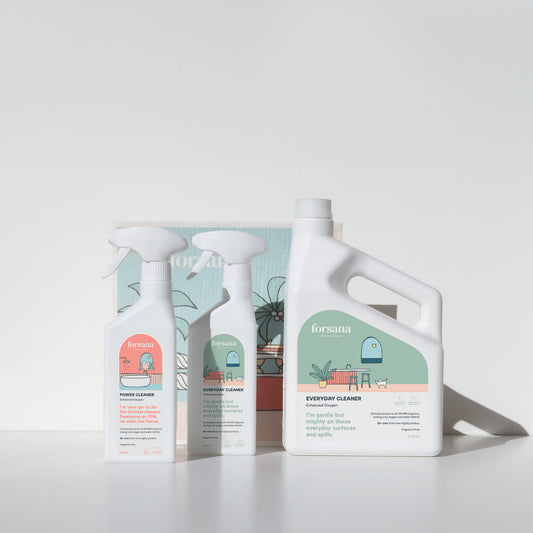Vinegar has been a staple for natural cleaning for decades, but as our understanding of hygiene and disinfection has grown, so too has the need for more effective solutions. Here’s a detailed look at why hydrogen peroxide—especially enhanced formulas like Forsana—offers a smarter, safer, and more effective upgrade for modern cleaning needs.
Vinegar: What It Does (and Doesn’t) Do
- Composition & Use: Cleaning vinegar is typically a 5–6% acetic acid solution. It’s effective at removing surface grime, mineral deposits, and soap scum, making it a popular choice for general cleaning tasks.
- Antimicrobial Action: While vinegar does have some antibacterial properties and can reduce certain bacteria like E. coli, Salmonella, and Listeria, it is not a registered disinfectant and does not reliably kill viruses or a broad spectrum of pathogens.
- Limitations:
- Ineffective against many viruses (e.g., norovirus, influenza, SARS-CoV-2).
- Cannot break down biofilms or reliably kill mould spores.
- Can damage delicate surfaces like natural stone, hardwood, and rubber seals.
- Leaves a strong, lingering smell.
- Not suitable for situations requiring deep sanitisation, such as kitchens, bathrooms, or when someone is unwell.
Bottom line: Vinegar is a surface cleaner, not a true disinfectant. It’s best for light cleaning and deodorising, but leaves gaps when it comes to comprehensive hygiene.
Why Upgrade?
If you’re still relying on vinegar for daily cleaning, consider the risks of incomplete sanitisation—especially in high-risk areas or when health is a top priority. Hydrogen peroxide, particularly enhanced formulas like Forsana, delivers a natural, powerful, and sustainable alternative that truly cleans, disinfects, and protects.
Forsana gives you the power of a hospital-grade disinfectant, without harsh chemicals or environmental compromise. It’s what vinegar wishes it could be.
In summary:
- Vinegar is a decent surface cleaner but falls short on true disinfection and biofilm/mould control.
- Hydrogen peroxide, especially enhanced with silver ions as in Forsana, is a proven, eco-friendly, and comprehensive solution for modern hygiene needs.
Upgrade your clean—choose Forsana for peace of mind and a healthier home.




 Sold out
Sold out




